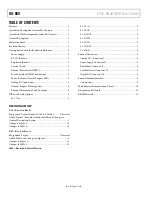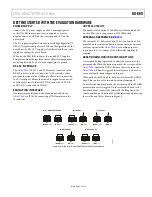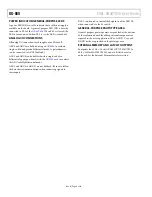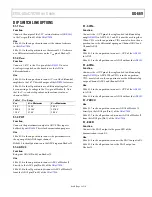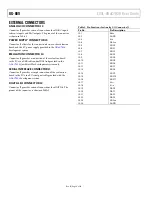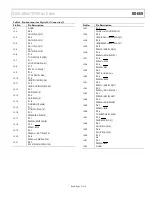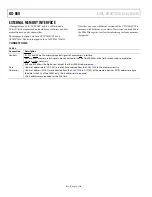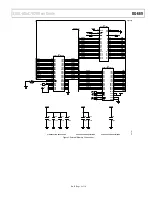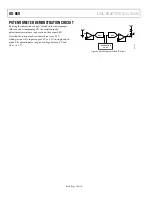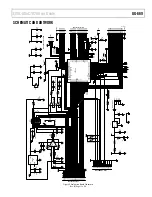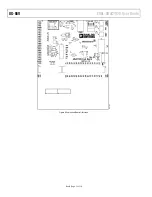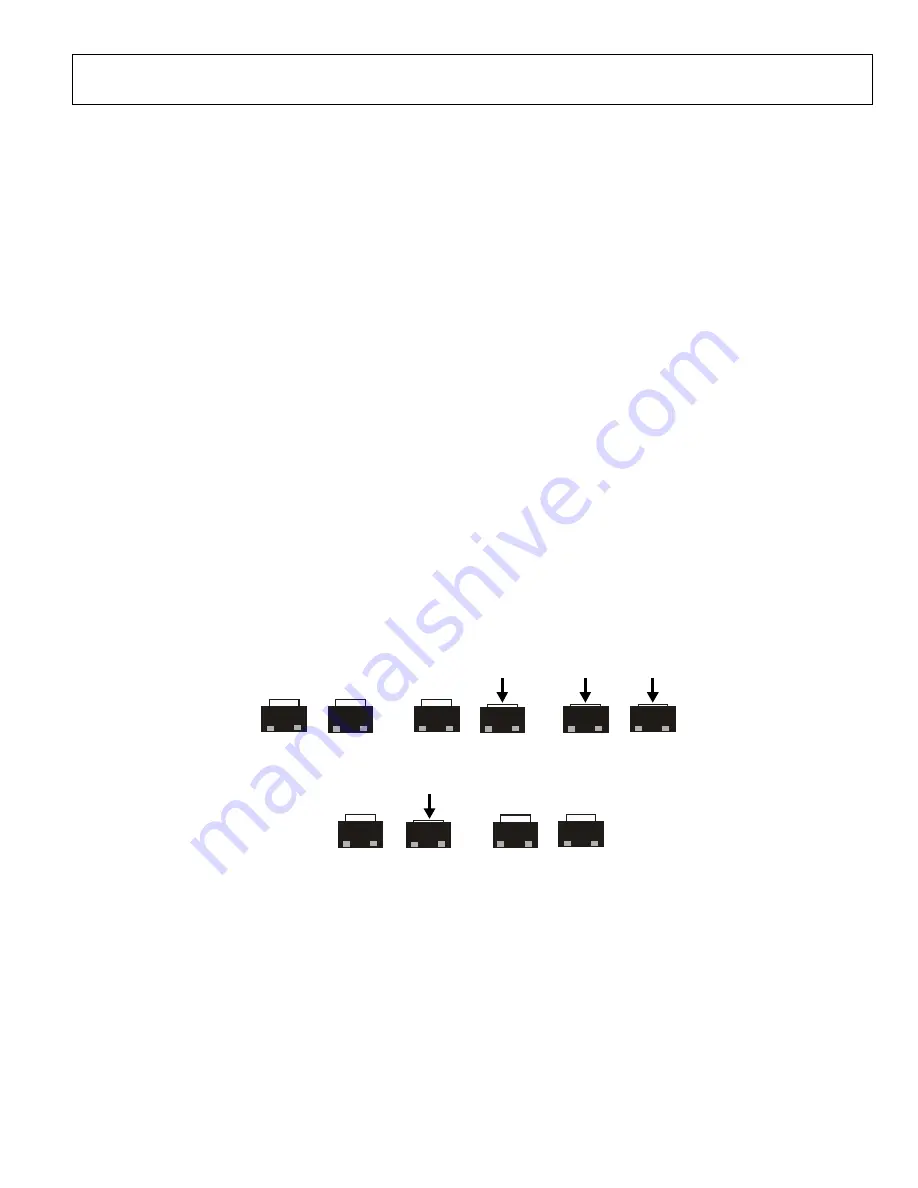
EVAL-ADuC7026 User Guide
UG-669
Rev. B | Page 3 of 16
GETTING STARTED WITH THE EVALUATION HARDWARE
POWER SUPPLY
Connect the 9 V power supply via the 2.1 mm input power
socket (J5). The input connector is configured as a center
negative, that is, as GND on the center pin and +9 V on the
outer shield.
The 9 V supply is regulated via the Linear Voltage Regulator U5.
The 3.3 V regulator output is used to drive the digital side of the
board directly. The 3.3 V supply is also filtered and then used to
supply the analog side of the board.
When on, the LED (D3) indicates that a valid 3.3 V supply is
being driven from the regulator circuit. All active components
are decoupled with 0.1 µF at device supply pins to ground.
RS-232 INTERFACE
The
(U1) P1.1 and P1.0 lines are connected to the
RS-232 interface cable via Connector J1. The interface cable
generates the required level shifting to allow direct connection
to a PC serial port. Ensure that the cable supplied is connected
to the board correctly, that is, DVDD is connected to DVDD
and DGND is connected to DGND.
EMULATION INTERFACE
Nonintrusive emulation and download are possible on the
, via JTAG, by connecting a JTAG emulator to the
J4 connector.
CRYSTAL CIRCUIT
The board is fitted with a 32.768 kHz crystal, from which the
on-chip PLL circuit can generate a 41.78 MHz clock.
EXTERNAL REFERENCE (
)
The external 2.5 V Reference Chip U2 has two functions. It is
provided on the evaluation board to demonstrate the external
reference option of the
to generate the V
OCM
voltage of the differential amplifier if
required.
RESET/DOWNLOAD/IRQ0 PUSH-BUTTONS
A reset push-button is provided to allow the user to reset the
part manually. When the button is pushed, the reset pin of the
is pulled to DGND. Because the reset pin on the
is Schmidt triggered internally, there is no need to
use an external Schmidt trigger on this pin.
When pushed, the IRQ0 push-button switch drives P0.4/IRQ0
high. This can be used to initiate an external interrupt 0.
To enter serial download mode, the user must pull the P0.0/BM
pin low while reset is toggled. On the evaluation board, serial
download mode can easily be initiated by holding down the
serial download push-button (S2) while inserting and releasing
the reset button (S3) as shown in Figure 2.
S3
(RESET = 1)
S2
(BM = 1)
(A) S3 AND S2 RELEASED
S2
(BM = 0)
S3
(RESET = 1)
(B) PUSH S2
S3
(RESET = 1)
S2
(BM = 0)
(D) RELEASE S3
S2
(BM = 0)
S3
(RESET = 0)
(C) PUSH S3
S2
(BM = 1)
S3
(RESET = 1)
(E) RELEASE S2
05032-
001
Figure 2. Entering Serial Download Mode on the Evaluation Board


